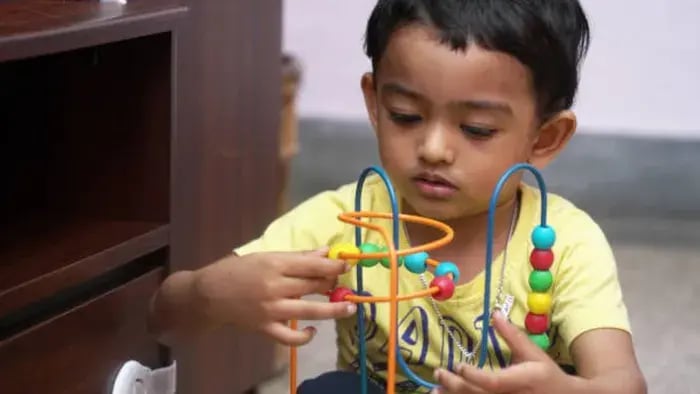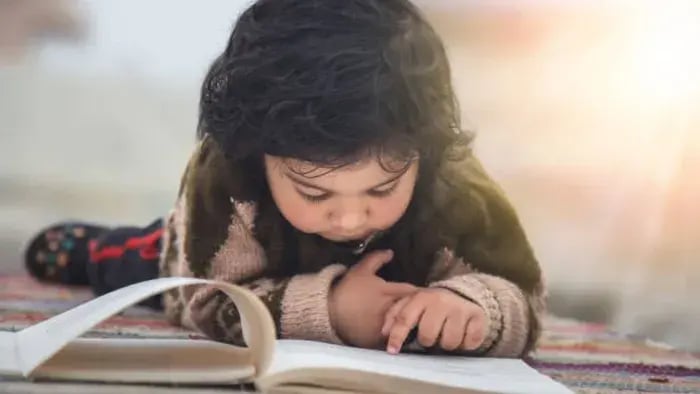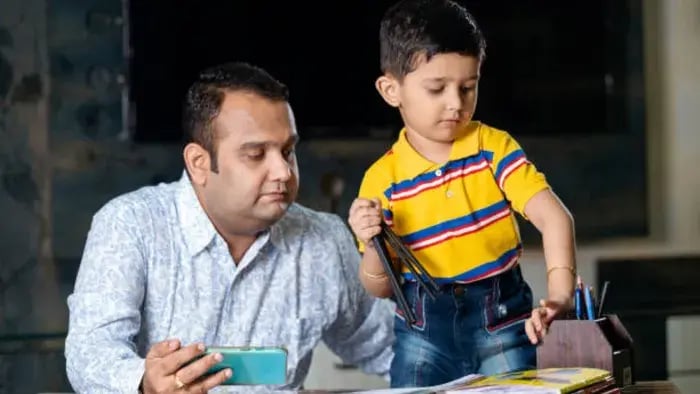- Builds Strong Brain Connections Early
- Develops Social and Emotional Skills
- Boosts Curiosity and Imagination
- Builds a Positive Learning Attitude
- Develops Communication and Language Skills
- Introduces Structure Without Pressure
- Prepares Children for a Changing World
Introduction

The first few years of a child’s life are more powerful than most people think. It is about laying the emotional, social and cognitive foundation that shapes how your child sees the world and responds to it. Early childhood isn’t a waiting room for “real school” to begin. It is the most active period of brain development where every moment of interaction, through stories, play, songs or gentle guidance, leaves a lasting mark.
With everything going copletel digital, the traditional ways of learning are taking a step back. It is important to nurture curiosity, empathy, resilience and critical thinking at an early age even if your child is at home, in preschool or daycare. These early environments have the power to shape their lifelong attitudes towards learning and relationships.
Investing in these early years doesn’t require fancy tools or expensive toys. It requires presence, conversation, exploration and spaces where children feel safe to wonder, make mistakes and grow at their own pace. Because when the roots are strong, everything that follows becomes steadier. Understanding why early childhood education matters is the first step to giving your child the best possible start.
Why Early Childhood Education Matters More Than Ever Today

When you think of early education, you probably picture coloring books, nursery rhymes or chatty play. But these early experiences are doing far more than just keeping kids occupied. They’re building a foundation, brick by brick, for the kind of person your child will become. Here are reasons why early childhood education is more important today than ever before.
Builds Strong Brain Connections Early
According to UNICEF, the early years are when your child’s brain is developing fastest. Every story you read, puzzle you solve or block you stack together creates new neural connections. These activities strengthen memory, focus and language skills—making later learning easier. The sooner you introduce purposeful learning the more your child’s brain will adapt to understand and retain information.
Develops Social and Emotional Skills
As per the study done by UNICEF, learning to share, take turns or express feelings isn’t always easy, but early childhood education helps your child practice these emotional building blocks every day. Through small group play and classroom routines, children learn empathy, cooperation, patience and kindness—skills that are just as important as academic success later in life.
Boosts Curiosity and Imagination
Research conducted by Annu Rev Psychol 2010., shows that children learn best when they explore with their senses and ask endless “why” questions. Early education gives them the time and space to nurture curiosity without rushing them to the next milestone. Activities like role play, music, storytelling, and nature walks feed imagination and boost creative thinking, so they stay engaged with the world around them.
Builds a Positive Learning Attitude
According to a study conducted by World J Clin Cases. 2021 when learning is fun, gentle and meaningful, kids start to associate education with joy, not pressure. This helps them become self-motivated learners who will try, fail and try again. Early childhood programs use praise, encouragement and play-based tasks to build confidence and a love of learning – traits that will carry through the school years.
Develops Communication and Language Skills
Research published in UNICEF, even if babbling with peers or reciting a rhyme aloud, early education helps children use language with confidence. Teachers introduce new words, guide simple conversations and help kids listen and respond. These everyday conversations build vocabulary and grammar and make your child a better listener and storyteller.
Introduces Structure Without Pressure
A study published in the National Academies Press 2016, shows that children don’t need strict rules or constant instruction to thrive, but they do benefit from gentle structure. Early education teaches routines like washing hands, packing up toys, waiting for your turn and following directions – all without harsh discipline. These early habits help children adjust to formal schooling and everyday tasks.
Prepares Children for a Changing World
As per a study published in Zero Three. 2013, the world your child will grow up in will look very different to today’s. Early childhood education gives them a head start on change by encouraging flexibility, resilience and emotional strength. It gives children a toolkit to manage change, navigate relationships and continue learning throughout life.
Conclusion

Early childhood education is about giving them a head start in life, with the right balance of love, guidance and playful discovery. These early years are powerful because they shape how your child learns, feels and connects. And in today’s busy, changing world, that kind of foundation is more important than ever. You don’t need a perfect plan – just a thoughtful one that centres on your child’s needs, strengths and the joy of learning.
Her love for storytelling began with reading her grandfather’s speeches, where Tarishi saw the power of words in creating lasting memories. Combining her passions for food and writing, she has turned her life into a fulfilling path of sharing stories that celebrate flavours and how food brings communities together.
The views expressed are that of the expert alone.
The information provided in this content is for informational purposes only and should not be considered a substitute for professional medical advice, diagnosis, or treatment. Always seek the advice of your physician or another qualified healthcare provider before making any significant changes to your diet, exercise, or medication routines.
References
https://www.ncbi.nlm.nih.gov/books/NBK402020/
https://pmc.ncbi.nlm.nih.gov/articles/PMC8283615/
https://pmc.ncbi.nlm.nih.gov/articles/PMC2829654/
https://pmc.ncbi.nlm.nih.gov/articles/PMC3722610/
https://www.unicef.org/india/what-we-do/early-childhood-development/parenting
















